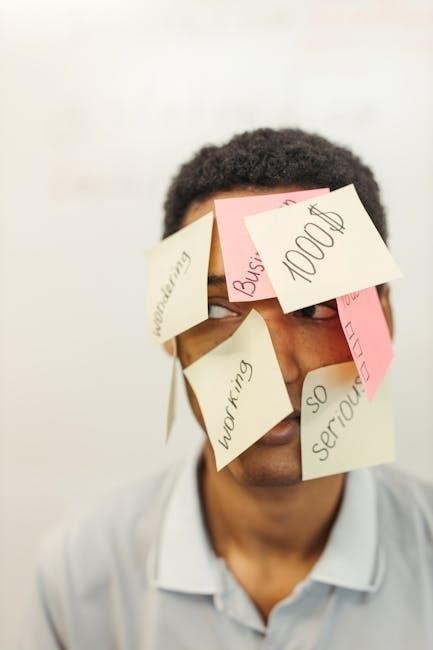An exclusive beat license agreement is a legal contract granting a buyer sole rights to a producer’s beat, ensuring protection for both parties in music production.
It outlines ownership, usage terms, and payment, safeguarding intellectual property and preventing unauthorized use, while providing clarity on commercial and non-commercial applications.
This agreement is essential for producers selling beats online, as it offers legal security, defines exclusivity, and ensures fair compensation for their creative work.
1.1. What is an Exclusive Beat License Agreement?
An exclusive beat license agreement is a legally binding contract between a music producer and a buyer, granting the buyer sole rights to use, distribute, and monetize the beat.
It ensures the producer retains ownership while the buyer gains exclusive usage rights, preventing unauthorized use by others. This agreement is crucial for protecting intellectual property and ensuring fair compensation in music production and sales.
It outlines terms like commercial use, royalties, and termination, providing clarity and legal security for both parties involved in the transaction.
1.2. Importance of Having a Legal Contract for Music Production
A legal contract is essential to protect both producers and buyers, ensuring clarity on ownership, usage rights, and compensation.
It prevents disputes by outlining terms like commercial use, royalties, and exclusivity, while safeguarding intellectual property from unauthorized use or theft.
A well-drafted contract provides legal security, ensuring fair compensation and defining the scope of the agreement to avoid future conflicts.

Key Components of an Exclusive Beat License Agreement
An exclusive beat license agreement includes ownership rights, usage scope, payment terms, and termination clauses, ensuring clarity and protection for both producers and buyers.
2.1. Definition of Exclusive Rights and Ownership
An exclusive beat license grants the buyer sole rights to use the beat, ensuring they are the only ones who can utilize it commercially or non-commercially. Ownership typically remains with the producer unless otherwise stated, meaning the producer retains creative rights but transfers usage rights exclusively to the buyer. This distinction is crucial for maintaining the producer’s intellectual property while allowing the buyer exclusive use, preventing unauthorized use by others. Clear definitions in the agreement protect both parties’ interests and prevent future disputes over rights and usage.
2.2. Scope of Usage: Commercial vs. Non-Commercial Use
Exclusive beat license agreements specify whether the buyer can use the beat for commercial purposes, such as selling music or merchandise, or only for non-commercial use, like personal projects or demos. Commercial use typically generates revenue, while non-commercial use is limited to personal or promotional activities without monetization. Clear definitions prevent misuse and ensure both parties understand the permitted applications of the beat.
Agreements often outline restrictions to protect the producer’s work, ensuring the buyer adheres to agreed-upon usage terms. This clarity helps avoid legal disputes and maintains fair compensation for the producer’s creative efforts, whether for profit or non-profit purposes.
2.3. Payment Terms and Royalty Structures
Payment terms in an exclusive beat license agreement outline the compensation structure, including upfront fees and potential royalties; The producer may receive a one-time payment or ongoing royalties based on the beat’s usage. These terms are negotiated to ensure fair compensation for the producer’s work, with clear definitions of how and when payments are made. Platforms like beat-selling websites often facilitate these transactions, ensuring transparency and accountability for both parties involved.
Agreements may also specify payment methods, such as bank transfers or digital payments, and detail any additional fees or percentages owed to the producer. Royalty structures vary depending on the agreement, but they are designed to reflect the commercial success of the music created using the licensed beat, ensuring the producer benefits proportionally from its use.
2.4. Termination Clauses and Breach of Contract
Termination clauses outline the conditions under which an exclusive beat license agreement can be ended. This may include failure to meet payment terms, breach of contract, or unauthorized use of the beat. The agreement specifies the process for termination, ensuring both parties understand their obligations and the consequences of non-compliance.
In case of a breach, the producer may revoke the buyer’s rights, seek legal action, or demand compensation for damages. These clauses protect both parties by providing clear guidelines for resolving disputes and terminating the agreement if necessary.

Understanding the Legal Implications
Exclusive beat license agreements involve complex legal aspects, including intellectual property rights, copyright laws, and potential disputes over unauthorized use or distribution of the licensed music.
Producers and buyers must understand these implications to avoid legal conflicts and ensure fair compensation and proper attribution for the creative work involved in music production.
3.1. Intellectual Property Rights in Music Production
Intellectual property rights are central to exclusive beat license agreements, protecting creators’ ownership of their musical works and preventing unauthorized use or distribution.
These rights ensure that producers maintain control over their beats, while buyers gain legal access under agreed terms, safeguarding both parties’ interests in the creative process and commercial use.
3.2; Sampling and Copyright Clearance
Sampling requires proper copyright clearance to avoid legal disputes, ensuring that original creators are credited and compensated for their work.
An exclusive beat license agreement must address sampling permissions, outlining how borrowed elements are legally incorporated into the track to prevent infringement claims and maintain compliance with copyright laws.
3.3. Liability and Warranty Disclaimers
Liability and warranty disclaimers in exclusive beat license agreements protect both producers and buyers, limiting legal responsibility for issues arising from the use of the licensed beat.
These clauses often state that the producer does not guarantee the beat’s suitability for specific purposes or warrant against claims of infringement, ensuring clarity and reducing potential disputes.

Exclusive vs. Non-Exclusive Licenses
Exclusive licenses grant sole rights to a beat, preventing resale, while non-exclusive licenses allow multiple sales, offering affordability and flexibility. This distinction is crucial for producers and buyers to understand.
4.1. Differences Between Exclusive and Non-Exclusive Agreements
An exclusive license grants the buyer sole ownership and usage rights, preventing the producer from reselling the beat. In contrast, non-exclusive licenses allow multiple sales, offering affordability and flexibility. Exclusive agreements are ideal for high-profile projects, while non-exclusive suits independent artists or those on a budget. Understanding these differences is crucial for aligning licensing choices with artistic and commercial goals.
4.2. When to Choose an Exclusive License
An exclusive license is ideal for high-stakes projects, such as major label releases or high-profile campaigns, where uniqueness and sole ownership are critical. It ensures the beat isn’t used elsewhere, protecting the artist’s brand integrity. Producers should opt for exclusive agreements when the buyer requires full creative control and when the financial return justifies removing the beat from the market.

How to Create an Exclusive Beat License Agreement
Use templates or online generators, customize terms for ownership, usage, and payment, and consult legal experts to ensure a binding and comprehensive agreement tailored to your needs.
5.1. Using Templates and Generators
Utilize pre-designed templates or online generators to streamline the creation process, ensuring compliance with legal standards. These tools provide structured frameworks, saving time and effort while maintaining professionalism. They often include customizable fields for ownership rights, payment terms, and usage specifics, allowing for tailored agreements. Additionally, many platforms offer free or affordable options, making it accessible for producers to craft legally binding contracts efficiently. Always review and adjust templates to fit your specific needs before finalizing.
5.2. Customizing the Agreement for Specific Needs
Customizing an exclusive beat license agreement ensures it aligns with the specific terms of the deal, protecting both producer and buyer. Tailor clauses to reflect ownership rights, payment structures, and usage permissions. Include details like delivery requirements, file formats, and any restrictions on modifications. This step ensures the agreement addresses all unique aspects of the transaction, providing clarity and legal protection for both parties involved in the music production process.
5.3. Role of Legal Counsel in Drafting Contracts
Legal counsel plays a vital role in drafting exclusive beat license agreements, ensuring compliance with copyright laws and protecting both parties’ interests. Attorneys review contract terms, negotiate clauses, and clarify legal jargon, preventing disputes. Their expertise in intellectual property and music licensing ensures the agreement is enforceable and tailored to specific needs, safeguarding the producer’s rights and the buyer’s expectations.
Selling Beats Online and the Role of Licenses
Selling beats online requires a license to protect your work. An exclusive beat license ensures legal security, preventing unauthorized use and resolving disputes between producers and buyers.
6.1. Platforms for Selling Exclusive Beats
Popular platforms like BeatStars, Airbit, and SoundClick offer secure spaces to sell exclusive beats. These platforms provide customizable contracts and license generators, ensuring legal protection. Producers can upload tracks, set prices, and manage sales seamlessly. They also offer marketing tools to increase visibility, attracting potential buyers worldwide. Using these platforms streamlines the process, ensuring both parties are protected and transactions are smooth.
6.2. Protecting Your Work with a License Agreement
A license agreement safeguards your exclusive beats by specifying usage rights, preventing unauthorized distribution, and ensuring royalties. It clarifies ownership, granting the buyer exclusive rights while retaining your copyright. Including terms like termination clauses and warranty disclaimers adds legal protection. This contract ensures both parties understand their obligations, protecting your intellectual property and creative rights effectively.
Common Mistakes to Avoid in Exclusive Licensing
Overlooking key clauses, such as termination terms and royalty structures, can lead to disputes. Failing to seek legal advice risks unenforceable agreements and intellectual property theft.
7.1. Overlooking Key Clauses
Overlooking key clauses in an exclusive beat license agreement can lead to legal disputes and financial losses. Essential clauses include termination terms, royalty structures, and usage rights. Without these, producers risk losing control over their work and revenue. It’s crucial to ensure all terms are clearly defined to protect both parties’ interests and avoid future conflicts.
7.2. Not Seeking Legal Advice
Not seeking legal advice when drafting an exclusive beat license agreement can result in oversights, leaving producers vulnerable to exploitation. Legal experts ensure clauses are enforceable and tailored to specific needs, protecting intellectual property and financial interests. Without professional guidance, agreements may lack necessary protections, leading to disputes and potential loss of rights or revenue.
The Future of Exclusive Beat Licensing in the Digital Age
The rise of AI and digital platforms is transforming exclusive beat licensing, offering streamlined distribution, enhanced security, and global accessibility for producers and artists alike.
8.1. Impact of AI and Technology on Music Licensing
AI and technology are revolutionizing music licensing by enabling AI-generated beats, automating royalty payments, and reducing copyright infringement through smart contracts and blockchain.
These advancements streamline licensing processes, enhance transparency, and empower creators to distribute exclusive beats globally, ensuring fair compensation and intellectual property protection in the digital era.
8.2. Trends in Digital Music Distribution
Digital music distribution is evolving rapidly, with exclusive beats being sold through online platforms like BeatStars and SoundCloud, ensuring global reach and accessibility.
Streaming services and social media platforms amplify visibility, while blockchain technology and digital rights management tools simplify royalty tracking and licensing, making it easier for producers to manage exclusive beats efficiently.
Best Practices for Executing an Exclusive License
Ensure clear communication with the buyer, deliver high-quality files, and include detailed documentation to avoid disputes and maintain professionalism in exclusive beat licensing agreements.
9.1. Clear Communication with the Buyer
Effective communication is crucial when executing an exclusive beat license agreement. Clearly outline the terms, usage rights, and expectations to avoid misunderstandings. Ensure the buyer understands their rights, such as exclusive use and distribution, while also clarifying any restrictions. Regular updates and prompt responses to queries help build trust and ensure a smooth transaction. Always maintain professionalism and transparency throughout the process to foster long-term relationships and mutual satisfaction.
9.2. Delivering High-Quality Files and Documentation
Providing high-quality audio files and complete documentation is essential for a seamless exclusive beat license transaction. Ensure tracks are delivered in formats like WAV or MP3, depending on the agreement. Include a signed contract, invoices, and usage guidelines. Clear documentation protects both parties and demonstrates professionalism. Always verify file integrity before delivery to maintain trust and satisfaction with the buyer.
An exclusive beat license agreement is vital for protecting rights and ensuring fair compensation in music production, making it indispensable for producers and buyers in the industry.
10.1. Final Thoughts on the Importance of Exclusive Beat Licenses
Exclusive beat license agreements are crucial for protecting both producers and buyers, ensuring clear ownership and usage rights while preventing legal disputes.
They provide a structured framework for fair compensation, intellectual property protection, and accountability, making them indispensable in the music production industry.
Investing time in drafting or acquiring a well-crafted exclusive beat license agreement is essential for maintaining professionalism and avoiding potential conflicts in music collaborations.
10.2. Encouragement to Use Legal Contracts for Music Production
Using legal contracts is vital for safeguarding rights and interests in music production, ensuring fairness and clarity for all parties involved.
Exclusive beat license agreements protect intellectual property, prevent unauthorized use, and provide a clear framework for compensation and usage rights.
Investing in a well-drafted contract not only enhances professionalism but also fosters trust and long-term relationships with clients.
Don’t underestimate the importance of legal safeguards—use contracts to ensure your creative work is valued and protected in every transaction.




